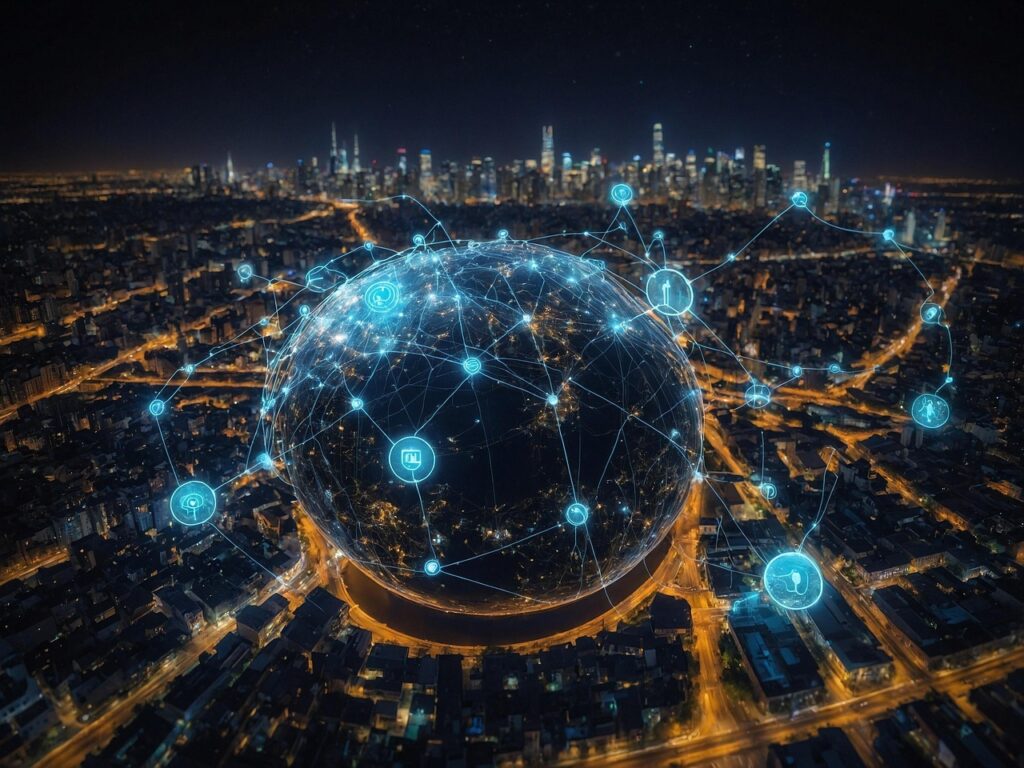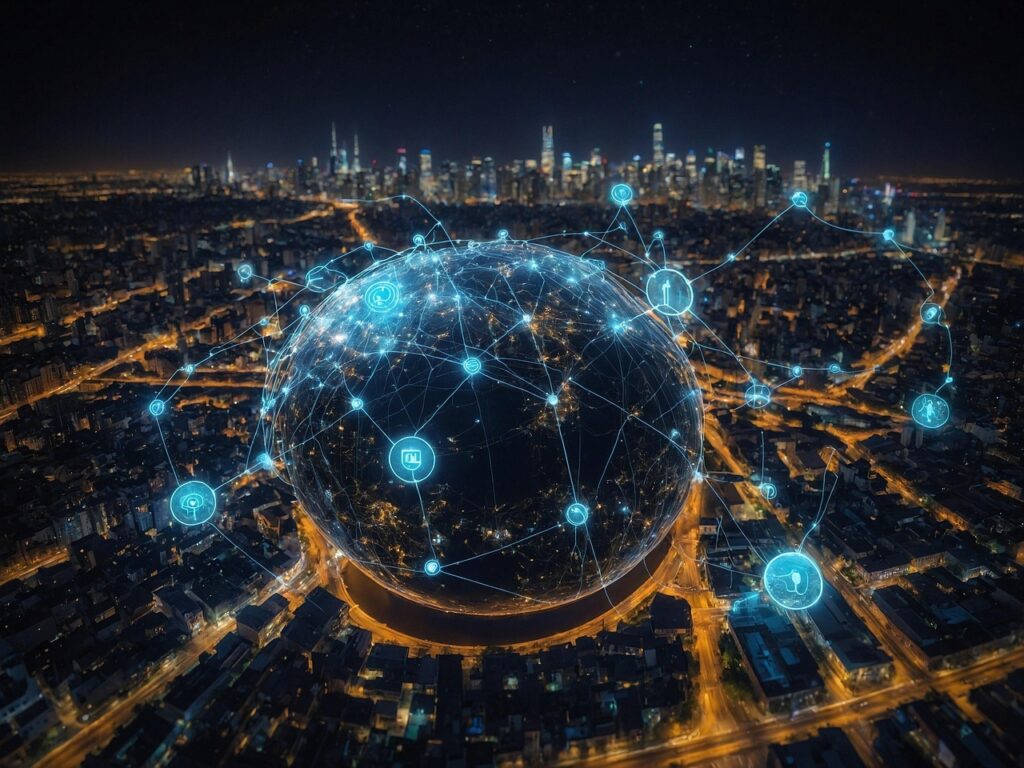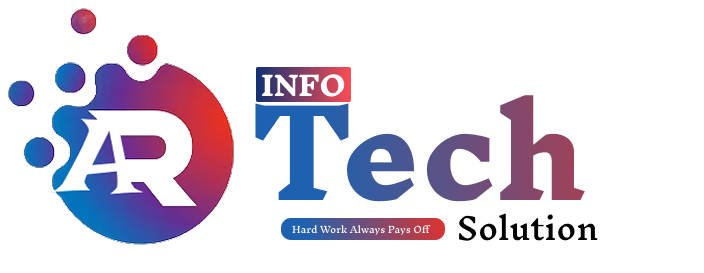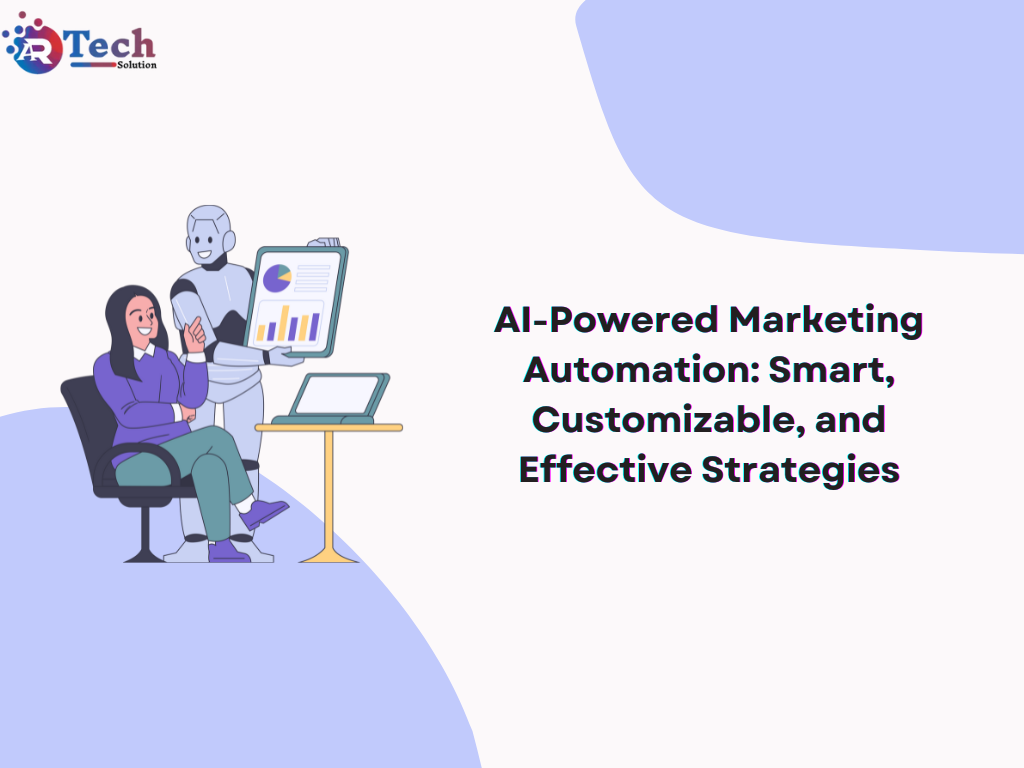Walk through Connaught Place on a Friday evening and watch the billboards change as if they’re reading the crowd. Pick up your phone in the metro and the ad you see knows it’s dinner time. Spotify nudges a playlist that fits your mood a little too well. Coincidence? Not really. That’s AI in marketing—quiet, constant, and woven into daily life.
The popular fear is that AI will replace the marketer. The reality I see inside real teams—startups, agencies, even family businesses—is different. AI amplifies the human. It takes the heavy, boring parts (sorting data, predicting demand, segmenting audiences) and leaves the human parts to us: taste, empathy, story, judgement. When you combine the two, you get campaigns that feel personal and perform better.
Below are seven grounded examples of AI at work today, followed by a plain-English playbook you can lift and run. I’ve kept the language practical and the advice specific; no hype, no sci-fi. Just things you can roll into your next sprint.
1) Conversational AI & Chatbots: Support That Never Sleeps
It’s 11:45 p.m. in Bengaluru. Someone wants to know if your store delivers to Patna and whether cash-on-delivery is available. A human team can’t be online all night. A conversational AI can—and it answers in English, Hindi, or Tamil without losing patience.

What good looks like:
- Instant answers to shipping, pricing, and return policies.
- Smart handoff to a human when nuance is needed.
- Memory of past chats so repeat visitors don’t repeat themselves.
Where this shines:
- D2C brands (order status, exchanges).
- Restaurants (menu, table bookings).
- Local services (salons, clinics, coaching centres).
Takeaway: Every unanswered question is a lost sale. Chatbots don’t replace your team; they filter and qualify so humans can focus on complex requests. For small business marketing, this is the easiest AI win.
2) Hyper-Personalisation: Campaigns That Feel Hand-Written
Personalisation used to be “Dear Rahul” in the subject line. Now it’s behavioural and real-time. The system notices you browse running shoes on Monday evenings and shows a “New Arrivals” carousel at 7:30 p.m. on Wednesday—your usual scroll window. If it rains in your city, the banner quietly flips to water-resistant gear.
What good looks like:
- Pduct suggestions that change with season, location, and device.
- Push notifications scheduled for each user’s most active hour.
- Offers that respect context (festival, salary day, exam season).
Where this shines:
- Marketplaces & e-commerce (Amazon-style recommendations).
- Food delivery (match-time snacks, late-night desserts).
- Ed-tech (reminders aligned to study schedules).
Takeaway: The difference between “spam” and “service” is timing and relevance. AI digital marketing turns audience data into a one-to-one conversation at scale.
3) Predictive Analytics: Knowing Tomorrow’s Order Today
Marketing used to be reactive: run an ad, wait, adjust. Predictive AI flips the sequence. It learns from past behaviour to forecast what happens next.
A real pattern we see often: customers reorder a serum roughly every 40 days. If you nudge them around Day 35—WhatsApp, email, or an app card—you lift repeat sales and reduce churn. The same logic applies to pet food, water filters, even coaching classes.
What good looks like:
- Reorder nudges that feel like reminders, not pressure.
- Stock planning that reduces “out of stock” moments.
- Budget shifts toward keywords and audiences with higher predicted conversion.
Where this shines:
- D2C (consumables, beauty, wellness).
- Grocery & pharmacy (subscription-like behaviour without the baggage).
- Insurance & banking (renewals, top-ups, pre-approved offers).
Takeaway: Prediction beats reaction. Use marketing intelligence to move from “What happened?” to “What’s likely next?”
4) AI-Generated Copy & Creative: Drafts That Beat Blank Pages
Writers hate staring at an empty doc. Designers hate fumbling for a first layout. Content creation AI tools fix the “blank page” problem. They won’t give you your final script, but they’ll hand you 10 workable starts—headlines, angles, hooks, visual comps—so you can refine the best one.
A famous early case: JPMorgan worked with an AI platform to generate ad copy and CTR jumped by triple digits. Today, smaller brands use tools like ChatGPT for marketing and Jasper to draft headlines, CTAs, and product descriptions, then polish by hand.
What good looks like:
- 10 ad variants → test → keep the two that win.
- Landing-page sections drafted by AI, structured by humans.
- Social captions with three tones (witty, formal, straight), chosen by brand voice.
Where this shines:
- Performance campaigns (many iterations, quick tests).
- SEO briefs and outlines (human experience layered on top).
- Email subject lines (speed + A/B rhythm).
Takeaway: AI doesn’t replace creativity; it speeds up iteration. The human touch still decides what’s on-brand and what crosses a line.
5) Smarter Retargeting with Deep Learning: Relevant, Not Creepy
We’ve all felt stalked by shoes we viewed once. That’s primitive retargeting. AI-powered advertising looks at intent. If you merely glanced, it shows a soft brand ad. If you compared sizes and colours, it shows reviews. If you added to cart and dropped off, it nudges a limited-time offer. Same product; different creative based on stage, not just pixels.
What good looks like:
- Sequenced creatives across the funnel.
- Frequency caps that respect the user (and your brand).
- Suppression of buyers (no one wants an ad after purchase).
Where this shines:
- High-consideration categories (electronics, furniture).
- Travel (destination research → hotel offers).
- B2B (case studies before demos).
Takeaway: Retargeting should feel like a helpful shop assistant, not a loudspeaker. Deep-learning ai advertising gets that tone right.
6) Marketing Automation & AI Agents: Fewer Tabs, More Thinking
Modern teams juggle five ad platforms, three analytics tools, and a dozen spreadsheets. AI agents stitch it together: they pull data, spot anomalies, suggest budget shifts, even draft a weekly summary that a human reviews.
What good looks like:
- Alerts when CAC spikes or conversion dips on a channel.
- Smart bid adjustments during peak hours (and peace at night).
- Automatic audience refreshes based on real performance.
Where this shines:
- Agencies managing multiple clients.
- In-house teams running web + app + retail media together.
- Founders who need a single view without the dashboard maze.
Takeaway: Automation doesn’t make strategy. It creates time so you can.
7) Beauty & Fashion Try-Ons: Confidence Before Checkout
Try a lipstick shade on your phone. Spin a sofa model in your living room. Check a kurta fit on a virtual mannequin that matches your size. This blend of AI + AR converts window-shoppers into buyers because it removes doubt.
What good looks like:
- Lighting-aware filters that don’t oversell.
- Clear “this is a simulation” labels (user trust matters)
- Fewer returns because expectations are set right.
Where this shines:
- Beauty & personal care (virtual try-ons).
- Home & furniture (AR placement).
- Fashion (fit previews, size predictions).
Takeaway: If customers can see it on themselves or in their space, they buy faster and return less. That’s real revenue, not vanity metrics.
A Simple Playbook You Can Actually Run

Phase 1 — Foundations (Days 1–15)
- Clean tracking: GA4 events, ad pixels, server-side tagging if possible.
- Speed & mobile checks (Core Web Vitals). Your ads can’t out-run a slow site.
- Consent, privacy, and opt-outs. Be clear. Be respectful
Phase 2 — First Wins (Days 16–45)
- Add a chatbot to answer the top 20 questions you get most.
- Launch one personalised email journey (browse → cart → post-purchase).
- Set up predictive nudges for your most re-ordered SKU.
Phase 3 — Scale (Days 46–90)
- Roll out retargeting sequences with three creative layers.
- Use content creation AI to draft 10 ad variants; test weekly, keep two.
- Automate a Monday performance digest to inboxes; discuss as a team, not in a spreadsheet trench.
Guardrails (Always On)
- Label synthetic images; disclose when content is AI-assisted.
- Keep a brand style guide (tone to use/avoid; legal dos/don’ts).
- Measure what matters: contribution margin, payback window, repeat rate—not just clicks.
Keywords touched: ai marketing strategy, using ai in marketing, generative ai in marketing, ai content marketing.
Mini Case Notes (Short, Real, Useful)
- Pune bakery: Predictive reminders at 5 p.m. on Fridays (“fresh sourdough is out of the oven”) lifted weekend orders without discounts.
- Jaipur boutique: AI-drafted reel hooks + human styling doubled reel saves; retargeting with size-guide content cut returns.
- B2B SaaS in Noida: Sales used ChatGPT for marketing to draft outreach, then personalised the first two lines manually. Reply rates rose; unsubscribes didn’t.
What to Measure (and What to Ignore)
Watch closely:
- First-response time (chatbot + human).
- New vs returning revenue.
- Repeat purchase window (is your nudge moving it?).
- Ad payback: how many days to break even?
- Brand searches (a quiet signal you’re doing more than performance).
Ignore (as primary goals):
- Impressions without context.
- CTR without conversion.
- Vanity followers.
Tooling Shortlist (Pick What Fits, Don’t Collect Badges)
- ChatGPT or Jasper for copy ideation and drafts.
- Mailchimp AI or Klaviyo for send-time optimisation and subject lines.
- Semrush AI for topic clusters and competitor gaps.
- Meta Advantage+ / Google’s Performance Max with strict guardrails.
- Looker Studio or Power BI for one clean view of the truth.
(If you’re an agency, document your “reason for change” when AI shifts a bid or budget. Clients trust transparency.)
FAQs (Short, Straight Answers)
Q1) What are the 4 types of AI?
Reactive (responds to the present), Limited-Memory (learns from history—this powers most ai in digital marketing), Theory-of-Mind (in research), and Self-Aware (theoretical).
Q2) What’s a strong example of AI in marketing?
JPMorgan’s AI-generated ad copy that dramatically increased CTRs. Closer to home: match-time snack prompts from food apps—simple, timely, effective ai advertising.
Q3) Is there a future in marketing with AI?
It’s the present. Teams using marketing ai get to decisions faster and waste less. The edge is not the tool; it’s the team that uses it well.
Q4) Which AI tools should a small business start with?
A bot for FAQs, an email tool with send-time AI, and a lightweight analytics dashboard. Add copy-assist tools when you start testing multiple ad variants.
Q5) How do we keep it ethical?
Disclose AI assistance, protect first-party data, avoid dark patterns, and give users a clean opt-out. Trust compounds faster than tricks.
Final Word
AI won’t write your brand story. It will help you tell it at the right time, to the right person, with fewer wrong turns. That’s the promise—and it’s already paying off for small shops and big brands alike.
If you’re just starting, don’t chase “everything AI.” Pick two moves:
- Answer faster (chat + helpful FAQs).
- Personalise smarter (timing + context).
Then measure, learn, and layer predictive nudges, retargeting sequences, and automation only when the basics hold. The teams that win in 2025 won’t be the ones with the most tools; they’ll be the ones with the clearest judgement—human judgement—backed by AI done right.
Read also : Best Free AI-powered video tools and Audio Generators for Content Creation
— Rahul, Digital Marketer, AR Infotech Solutions


